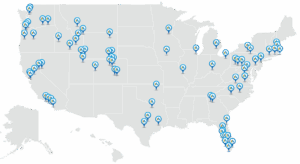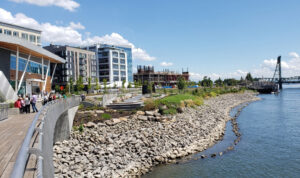Industry Alert: Seattle’s Building Emissions Performance Standard (BEPS) Policy
On December 13, 2023, Seattle became the latest city to enact a policy aimed at improving energy efficiency and reducing climate impacts in existing buildings.
Seattle’s BEPS Policy mandates the gradual elimination of fossil fuels and other greenhouse gas (GHG) emissions from large commercial and residential buildings. It applies to existing commercial and multifamily buildings larger than 20,000 square feet and is projected to reduce building emissions 27 percent by 2050.
The first milestone for building owner/operators arrives October 1, 2027, and requires benchmarking verification and reporting against targets (Greenhouse Gas Intensity Targets, GHGIT, expressed in kgCO2e/sf/year). By 2031 the buildings must meet the GHGITs. The city has taken a phased approach starting with the largest buildings.
Despite the flexibility in the reporting and verification requirements, BEPS is backed by penalties for noncompliance. Building owners/operators can who fail to report, inaccurately report, or fail to achieve GHGIT targets will incur fines ranging form $15,000 up to $10 per square foot.
| What Are the Seattle BEPS Deadlines? | ||
|---|---|---|
| By October 1 of year Listed | Verify and Report | Verify, Report, and Meet GHGI Target |
| >220,001 SF | 2027 | 2031 |
| 90,001 to 220,000 SF | 2027 | 2031 |
| 50,001 to 90,000 SF | 2028 | 2033 |
| 30,001 to 50,000 SF | 2029 | 2034 |
| 20,001 to 30,000 SF | 2030 | 2034 |

The GHGIT for each building is determined by the building type activity. Currently, legislation sets required targets only for the 2031–2035 interval. As building stock, technology, and impact from other legislative regulations such as the Climate Commitment Act (CCA) and Clean Energy Transformation Act (CETA) become clearer, the new intensity targets will be set.
BEPS requires a qualified person, working on behalf of the building owner, to create an energy benchmarking verification report, calculate the greenhouse gas intensity (GHGI), and document the action completed to meet set GHGITs for a covered building. Qualified persons must have specified certification and knowledge about energy audits and GHG verification. Besides calculation and documentation, qualified people can also help with the reporting process and consult on alternative compliance approaches. For instance, where there are extenuating circumstances that make complying with the schedule or meeting the GHGITs a significant hardship for an individual building owner, a qualified persons can develop a decarbonization compliance plan for achieving net‑zero GHG emissions or an approved low emissions GHGIT by 2041–2050.
Why Apex?
Our approach is rooted in current guidance/regulations and our teams have over 25+ years conducting energy audits and GHG assessment. Apex personnel have conducted environmental and GHG assessments in all 50 states and have a long history of working in the Seattle area with commercial offices, residential properties, industrial plants, shopping centers, automobile dealerships, warehouses and industrial manufactures.
How Apex can help.
The Apex team is known for services not only in GHG assessments but also environmental assessment and remediation, hazardous building materials (lead, asbestos, and mold), industrial hygiene, and worker safety.
- Energy Audits
- GHG Audits
- Energy Reduction Strategies
- Water Use Reduction Strategies
- Renewable Energy Feasibility Assessments
- Resource Reduction and Re‑use strategies
- Sustainability Return On Investment Calculations
Apex Associated Press (Apex AP) represents contributions from various authors within the Apex professional community.
Disclaimer
Please note that all content provided on this blog is for informational purposes only and does not necessarily represent the views, opinions, strategy, or methods of Apex Companies, LLC (Apex). Apex makes no representations as to the accuracy or completeness of any information on this site or found by following any link on this site. Apex will not be liable for any errors or omissions in this information nor for the availability of this information. Apex will not be liable for any losses, injuries, or damages from the display or use of this information. Apex reserves the right to edit or delete any comments submitted to this blog without notice to whoever wrote, submitted or posted the comment. Anyone who submits or posts any material to this blog waives any right or claim to privacy with respect to the content submitted or posted. By submitting or posting any content, the person or entity that does so is representing that they believe it to be accurate, have a legal right to the content, and have legal authority to submit or post it. Please do not submit or post anything if this is not the case. Please consider these requirements carefully when submitting or posting comments, photographs or other material relating to third parties who may have privacy, ownership or other rights implicated by the content. Readers are encouraged to seek professional legal, scientific, and/or engineering consultation concerning specific environmental, engineering, or other concerns. If you would like to contact Apex for more information regarding professional consultation to address your specific concerns, click here.






